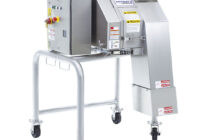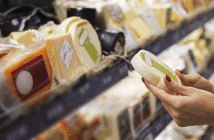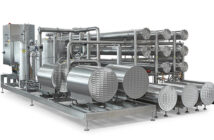By Dr Mustafa Farouk, AgResearch Ltd
The worldwide population of Muslims is estimated to be anywhere between 1.6-1.8 billion and growing – forecasted to represent 27 percent of the global population by 2030. Coupled to this is the growing economic development and disposable income in Muslim countries. These two factors are the major drivers of Halal growth, and potentially the reasons for Halal becoming the biggest brand in the world.
According to the World Halal Forum Secretariat the world Halal food and beverage, pharmaceuticals and cosmetic/ personal care trades are estimated respectively to be approximately US$1.4 trillion, US$506 billion and US$230 billion dollars annually.
The opportunities that this Halal brand represents is the reason for global food giants, as well as small to midsize companies becoming involved in the manufacturing and marketing of their products to Muslims worldwide. It is also for the same reason that countries including New Zealand, as well as economic blocks such as the EU, are enacting legislations to increase their access to Halal markets.
For example, the New Zealand Ministry of Primary Industries issued a Animal Product Notice in 2010 to protect Halal meat trade.
Because of the rapid growth in the volume and value of trade in Halal meat and meat products around the world and the increased demand for Halal assurance by the Muslim consumer, a number of regulatory and certifying bodies have sprung up in both producing and importing countries to ensure the ‘Halalness’ of these products.
New Zealand is currently the leading exporter of Halal lamb and a significant exporter of Halal beef and co-products. For the country to maintain its position as a leading exporter of these products, it must pay particular attention to the requirements by the Halal regulatory bodies in importing countries and ensure that these are adhered to throughout the meat and co-products value chain.
Although these certifying/regulatory bodies differ in their standards for certification, the differences tend to be relatively minor and largely reflect variations in the way the preferred, but not the obligatory practices laid down in Islamic religious texts are interpreted. This lack of uniform Halal standards, though confusing and counter-efficient, should not constitute a major hurdle in exporting Halal products from New Zealand to markets around the world.
However, the New Zealand meat industry should not just be satisfied by its current position as a major exporter of Halal raw meat and offal, but should strive to optimise its opportunities by adding value to what it currently produces and by extending the line of products that it exports from the raw materials it generates.
For instance, the industry should increase the amount of further processed Halal meat products and specialty smallgoods that it exports relative to raw meat and co-products. It can do that by targeting products to the right markets that are fit for purpose. Because the majority of Halal consumers are found in arid or semi-arid regions of the world, the production of premium processed meats that are stable at ambient temperatures or that require minimum refrigeration in the fermented, dehydrated or pouched/canned products categories would be worth consideration for those markets.
In other markets such as North America or Europe where a large population of native or diaspora Halal consumers reside, frozen or chilled packaged Halal ready-to-eat (RTE) meats or meat-based products could be targeted.
Other opportunities exist in adding value to the co-products of the red meat industry such as the offal, bones, hides/skins and entrails by producing high value Halal ingredients and processing aids for use by the food, pharmaceutical and cosmetic industries. Meeting the Halal requirements for these products is not difficult and expertise abounds in New Zealand to help the industry to meet those requirements.





























































































